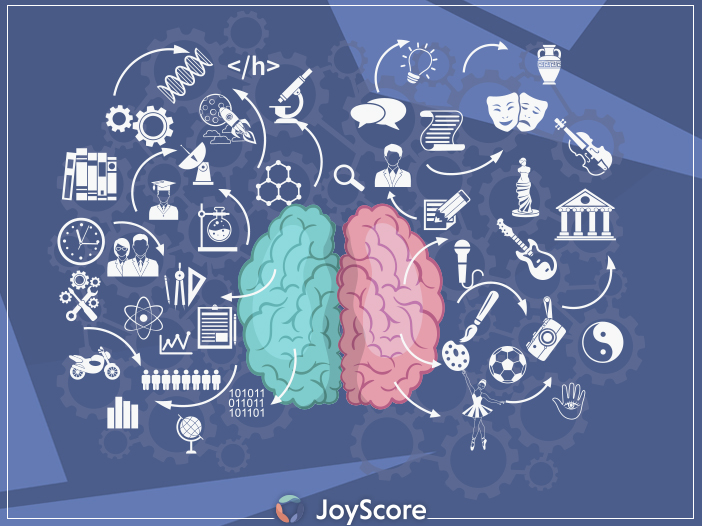Wisdom is not a result of schooling but of the lifelong attempt to acquire it. It is better to remain silent at the risk of being thought a fool than to talk and remove doubt.
Derivation of the Word Wisdom
Many ancient cultures recognized a particular way of being, speaking, and acting that needed a word to describe it. Wisdom comes from two old English words, `wis` and `dom.` The word `wis` may be related to the Latin `visionem.` A wise person is someone with vision, whether in terms of motivation for working towards a good future or having a broad perspective on life.
The word `dom` another Old English word relates to making the right decisions or judgments. A person having this quality is likely to be respected and consulted by others as an authority in practical matters.
More important than the word is the quality that it signifies. To grow in Wisdom can be the task of a lifetime.
What is Wisdom?
Wisdom is a set of dispositions, skills, and policies that help us liberate about what matters in our life and translate that into choices and actions. We need to figure out what’s right and achieve those things in our life. We could further help those who are struggling with their deliberate and choices.
Wisdom is the capacity to create and act using knowledge, experience, understanding, general sense, and insight. Intelligence is related to attributes such as unbiased judgment, compassion, experiential self-knowledge, self-transcendence and non-attachment, and virtues such as ethics and benevolence.

Difference between Wisdom and Knowledge
Knowledge is a collection of facts and data. Wisdom is the blend of knowledge and experiences into insights that deepen one’s understanding of relationships and the meaning of life. Learning is a tool, and sense is the craft in which the device is used.
Does God Give us Wisdom?
From experience comes testimony. When you seek Wisdom, God will give it generously without finding fault: Wisdom offers you long life, wealth, and honor.
Can Wisdom be Taught?
No, Wisdom is not something that can be given by coaching though one can become learned over time. There isn’t a set way to act artfully under every circumstance. To grow wise, you must cautiously probe your intelligence through many experiences to apply your skills and knowledge more effectively.

What is Wisdom, and How do You Acquire it?
Wisdom is a morality that isn’t inborn, but you can gain through experience. Anyone interested in trying new things and reflecting on the process can gain understanding. By abundant learning, you can analyze your skills, put your knowledge to the test, and become a wiser person. Wisdom guides our thinking, attitude, and overall mindset. Wisdom is one of the highest qualities that a human being possesses. Knowledge cannot be taught to anyone, not even to the most intelligent person on the planet. It is the ability to think and perform actions using one’s own experiences, insight, and intelligence.
How to Gain Wisdom to Improve Your Working
- Try New Things – Whenever you encounter anything new, open all the windows of grasping and then becoming a little wiser for having tried it. Try going to new places or try new social activities.
- Step Out of Your Comfort Zone– We must do that which we think we cannot. A good example would be the fear of speaking in public.
- Take the Initiative to Talk to People You Don’t Know Very Well – The more you’re able to empathize with people from different backgrounds and with diverse perspectives, the wiser you will be.
- Be open-minded – Don’t base your opinions on what other people think. Do your research and look at both sides of the story before deciding what you think about something.
- Enrich Yourself with Education – If you are interested in learning something new, taking a class is one of the best solutions to it. For example, learning a new language. Strengthen the language by taking a class or do so entirely on your own.
- Find Wise Mentors – Identify people who strike you as knowledgeable in your life. It could be a family member, a fellow friend, or a teacher. Try to learn from him or her as to why others seek advice from them.
- Read as Much as You Can – Reading is a way to absorb other people’s perspectives, no matter what subject they’re writing.
- Realize That Everyone is Fallible – As you gain your Wisdom and experience, you will find the people you looked up to as mentors have their fallings. Strive to see people’s humanity and practice forgiveness when someone you revered makes a mistake.
- Be Humble in New Situations – There will always be a time when the line between right and wrong would seem fuzzy, and you get muddled between the two. Don’t get into a new situation, presuming that you know how to act. Admitting your limitations is a high form of Wisdom.
- Think Before Acting -Take as much time as you need to deliberate on a problem before making a decision. To make the wisest possible choice, measure the pros and cons of taking your experience and other’s advice.
- Act on Your Values – Don’t accept a set of values because that’s what you were taught. Ultimately, your values should be in alignment with your conscience.
- Learn From Your Mistakes – Even a carefully thought of decision can end up being the wrong one. Don’t regret making a mistake; instead, learn from the experience. You’re human and realize that there’s no such thing as perfection.
- Share Your Wisdom With Others – Always lead by example. Show others the Wisdom of being open, nonjudgemental, and thoughtful in all situations.
Who is a Wise Person?
A wise person isn’t necessarily who has more knowledge, but who knows how to use it positively and effectively. Wisdom means knowledge, experience, and understanding. It allows a person to make decisions, offer advice, and achieve the best possible outcome in a given situation. Living a balanced life is all about Wisdom. Wisdom is an absolute necessity. A wise person has learned how to live in discerns what’s right and wrong, wise or foolish, essential or insignificant, and then apply it to everyday life choices. A smart person measures words before speaking because words can hurt far more than words.



